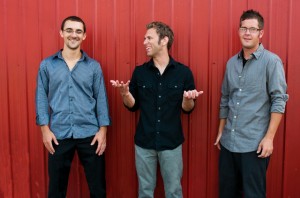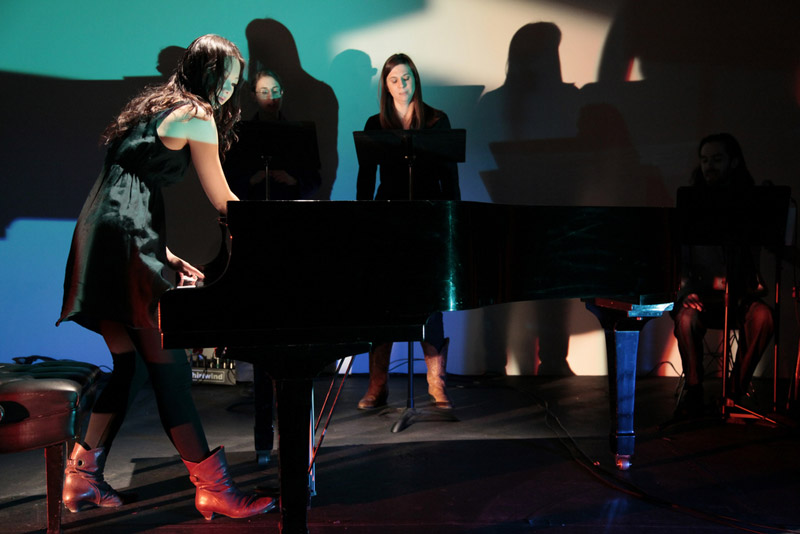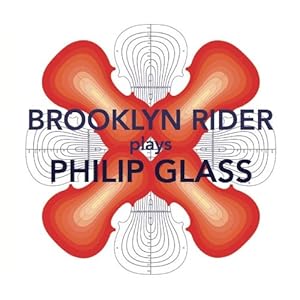
In the Kaleidoscope: the Music of Sean Shepherd
April 23, 2012
Music Mondays at Advent Lutheran Church
NEW YORK – Sean Shepherd’s music was featured in last week’s Music Monday concert at Advent Lutheran Church on New York’s Upper West Side. One of the fast rising stars of contemporary classical music’s thirty-something set, Shepherd has already been performed by the New York Philharmonic, on their Contact contemporary music series, and is currently in residence with both the orchestras Cleveland and Reno. Upcoming performances of his works are this summer at the Tanglewood Festival of Contemporary Music and in the Fall with the National Symphony (both under Oliver Knussen). His publisher – a little house you may have heard of – Boosey and Hawkes.
Although the aforementioned accomplishments indicate that Shepherd is making a name for himself as a composer of orchestral music, the concert at Advent Lutheran demonstrated that he’s also creating compelling works for chamber forces. The centerpieces of the program were two oboe quartets – Mozart ‘s K. 370 paired with a new piece by Shepherd. In discussing the work in an onstage interview, the composer mentioned his undergraduate degree in bassoon performance as an entry point into composing for winds and as a reason for his selection of the Mozart work as a companion piece to his own music on the concert. Another inspiration surely was oboist Liang Wang (of the New York Philharmonic), whose superlative control in the Mozart buoyed a supple performance with many lovely dynamic shadings.
Shepherd’s Oboe Quartet (2011), which received its New York premiere, takes inspiration from the Mozart; but not in any direct or referential sort of way. Rather, the graceful balance of elements found in the earlier piece serves as a totemic point of reference, allowing Shepherd’s postmodern language to be imbued with large-scale formal clarity. Wang adopted a more mysterious tone quality here, befitting the arcing filigrees that characterized his more virtuosic passages. His collaborators, violinist Miranda Cuckson, violist Jessica Meyer, and cellist Julia Bruskin were also impressive in the work’s darting counterpoint and frequent tightly coordinated entrances.
Cuckson, joined by pianist Aaron Wunsch, gave a performance of Shepherd’s Dust (2008) that underscored its variegated moods, ranging from diaphanous Impressionist verticals to fierily angular melodic ricochets. Dust encompasses both Shepherd’s flair for the dramatic and his capacity for fetching lyricism.
The Claremont Trio was on hand to give the New York premiere of a brand new piano trio, written for them by Shepherd. Some of the signature elements found in the evening’s earlier pieces were here too: quickly rendered angular passages in rhythmic sync, wide contrasts of mood between more ruminative sections and those busily attired with nervous energy, and a varied harmonic palette that encompasses passages that, while not exactly tonal in orientation, provide a sense of lyricism and centricity, as well as places where the pitch language is replete with dissonance. But more heightened here than elsewhere on the concert was the sense of multiple time streams and a catalog of metric shifts that I presume may be architectural in design (I hope to get my hands on a score to verify this presumption). Regardless, it’s one of Shepherd’s most thoughtfully constructed works to date. The Claremont Trio plays it throughout with assuredness and enthusiasm. Collectively and as soloists, Shepherd has given them many places to shine: and shine they do. Dare we hope that a studio recording is forthcoming?
Incidentally, Music Mondays hosted a packed crowd for this event. While it doesn’t hurt that admission is free, whatever they are doing to get out the word is working!


 This weekend, the Austin New Music Co-op celebrates its 10th year of wild music with two nights of concerts. The programs will function partly as a retrospective on those years, reprising some of their most ambitious and unique projects, like last year’s massive US premiere of Cornelius Cardew’s “The Great Learning” (excerpted now with the Texas Choral Consort). Other group milestones on the program include:
This weekend, the Austin New Music Co-op celebrates its 10th year of wild music with two nights of concerts. The programs will function partly as a retrospective on those years, reprising some of their most ambitious and unique projects, like last year’s massive US premiere of Cornelius Cardew’s “The Great Learning” (excerpted now with the Texas Choral Consort). Other group milestones on the program include:





 Washington, D.C. readers may have noticed that the new music scene in the District has been exploding lately. This week brings another significant event when New York’s
Washington, D.C. readers may have noticed that the new music scene in the District has been exploding lately. This week brings another significant event when New York’s 
